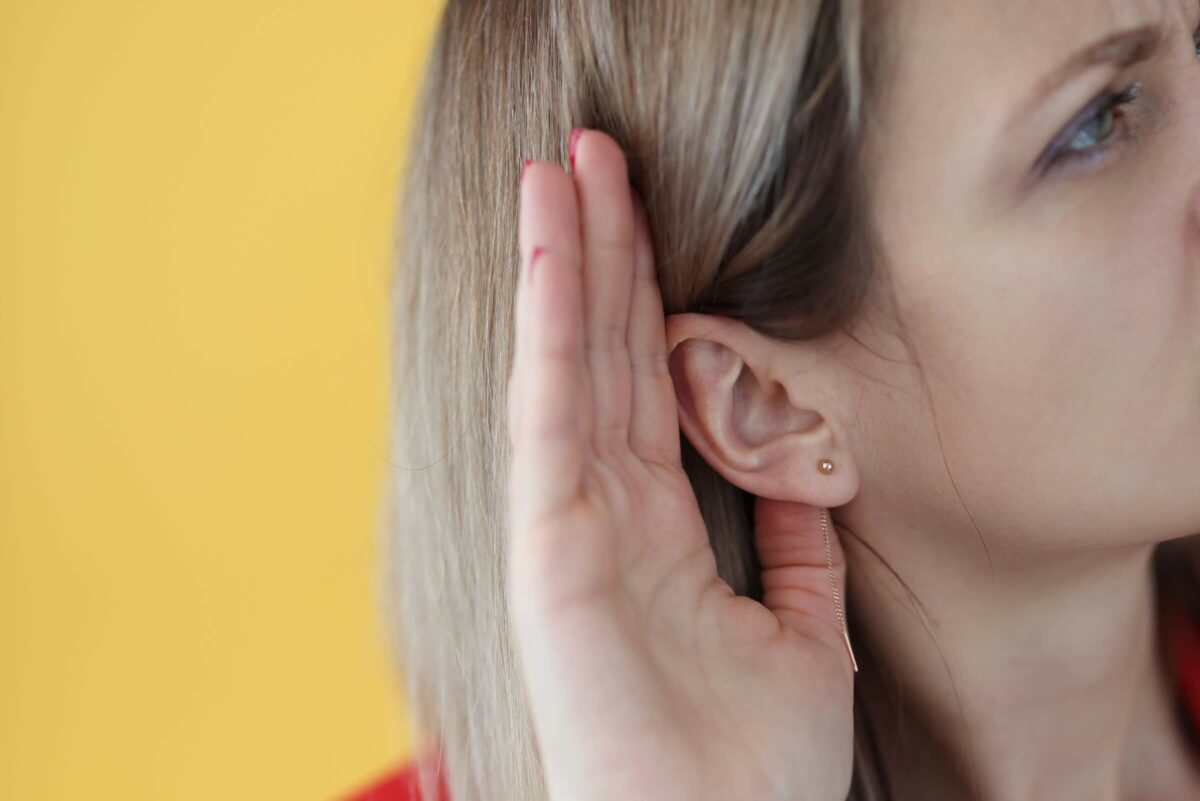If you have noticed changes in the way your loved one, family member, or friend communicates, you may wonder if hearing loss is the underlying cause. Although many factors can affect our communication style, ranging from circumstances to health issues, hearing loss is a common reason that a person begins to communicate differently. Catching the early warning signs of hearing loss is essential to getting the help your loved one needs. Once you are alerted to the possibility of hearing loss, you can put your loved one in touch with one of our hearing health professionals to get a hearing test and to discover if indeed that is the issue. Let’s take a look at some of the common signs of hearing loss. Although none of these signs is a conclusive diagnosis of loss, in combination you can begin to assess the possibility of hearing loss. Once you notice these signs, the next step is to encourage your loved one to get a hearing exam and to pursue treatment, if needed.
Communication Signs
The most common and strongest signs of hearing loss have to do with communication. If you have noticed that your loved one is asking you to repeat yourself more often, to speak up, or simply saying “What?” after you say something, these are clear signs that hearing is an issue. Of course, a diagnosis will be necessary to determine the cause of this hearing difficulty, but these signs remain as a clear indication of your loved one’s need for a test. Beyond these direct signs, there are other communication-based signals that may indicate hearing loss. For example, if your loved one doesn’t notice that you are talking when you are out of eyeshot, that may signal a reliance on visual cues to support hearing. Similarly, if your loved one seems to “check out” in conversations and stop paying attention altogether, that lack of attention might signal fatigue at the straining process of trying to understand what you are saying. Some people simply become frustrated, agitated, or embarrassed when they are expected to communicate, particularly when there is competing background noise. This emotional effect might let you know that hearing has become a serious problem, so much that the person is experiencing negative feelings. Miscommunication is yet another warning sign of hearing loss. If you ask a question and receive an answer that doesn’t make sense, it is likely that your loved one didn’t catch the question correctly. Similarly, if you find that your loved one is failing to act on information you provided, it is possible that they didn’t hear you in the first place.
Other Signs of Hearing Loss
Other signs of hearing loss can indicate a number of health issues, only one of which is hearing loss. If your loved one is demonstrating anxiety, stress, or depression, each of these mental health symptoms can be related to hearing loss. Fatigue in social situations can be another potential sign. Although people experience social fatigue for a number of reasons, hearing loss is one of the reasons a person might become exhausted in a social setting such as a party, family gathering, or community event. Some physical health conditions are strongly related to hearing loss, including cardiovascular disease, diabetes, gout, osteoporosis, and dementia. If your loved one has been diagnosed with any of these, then your doctor might recommend a hearing test, as well. In each case, the statistical correlation between that condition and hearing loss is enough to be considered a risk factor, making a hearing test necessary.
Following the Signs
If you have noticed any of these warning signs of hearing loss, take a moment to talk with your loved one about getting a hearing test. The sooner you have that diagnosis in hand, the better prepared you will be to help pursue treatment. When your loved one gets help with hearing, many of these negative relationships will be relieved, and your communication can be restored to ease once again. Don’t put off having a conversation with your loved one if you have noticed these signs. The benefits of receiving treatment are so many that your loved one will surely thank you!

